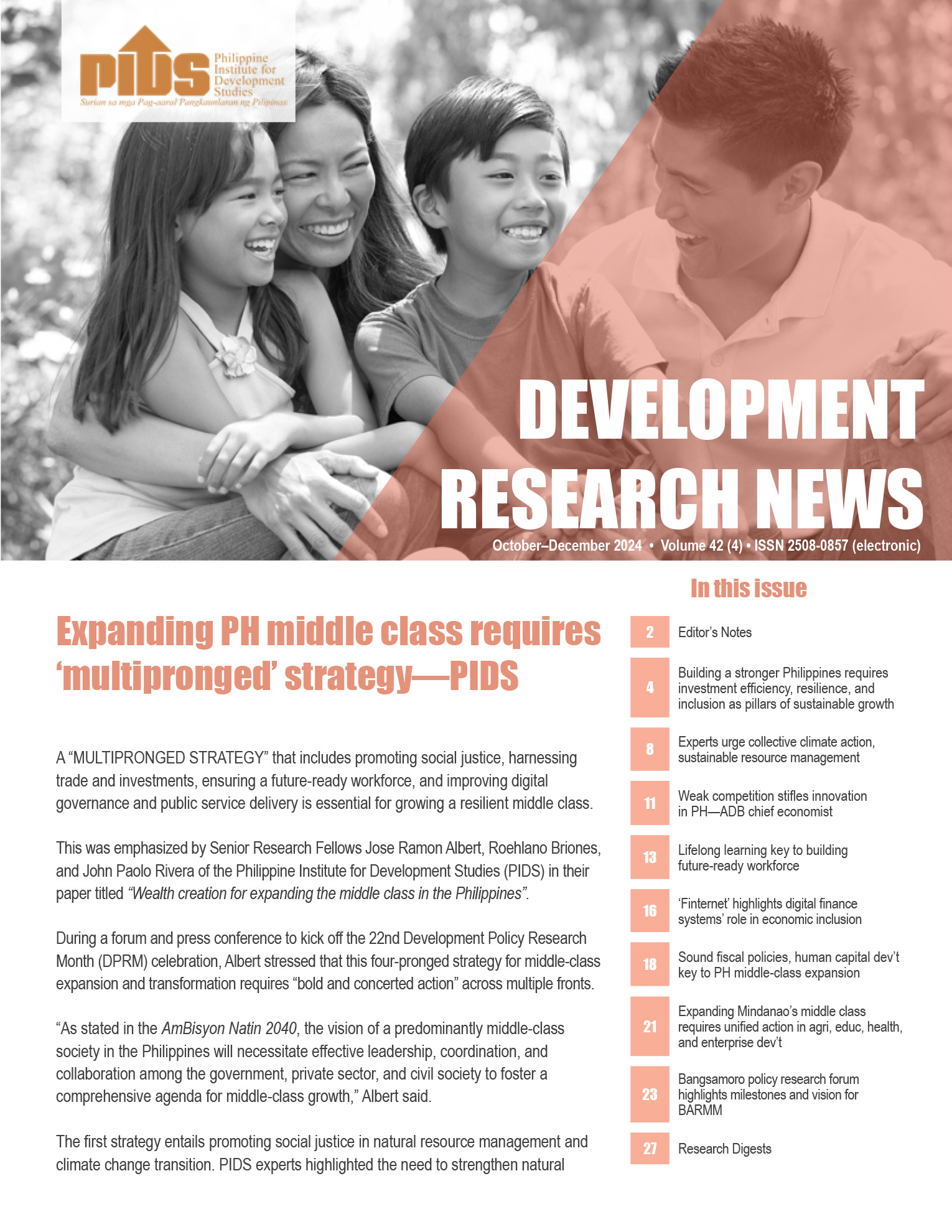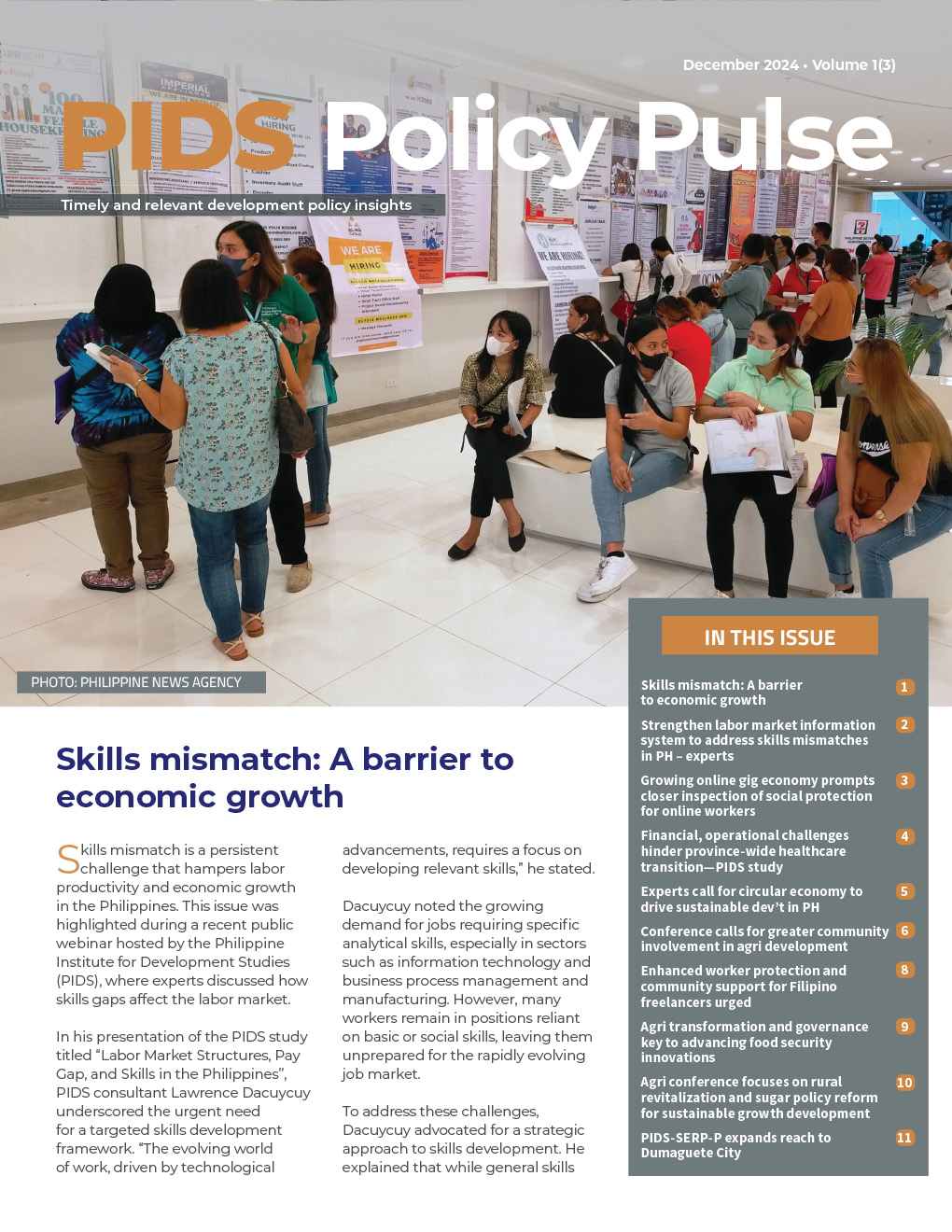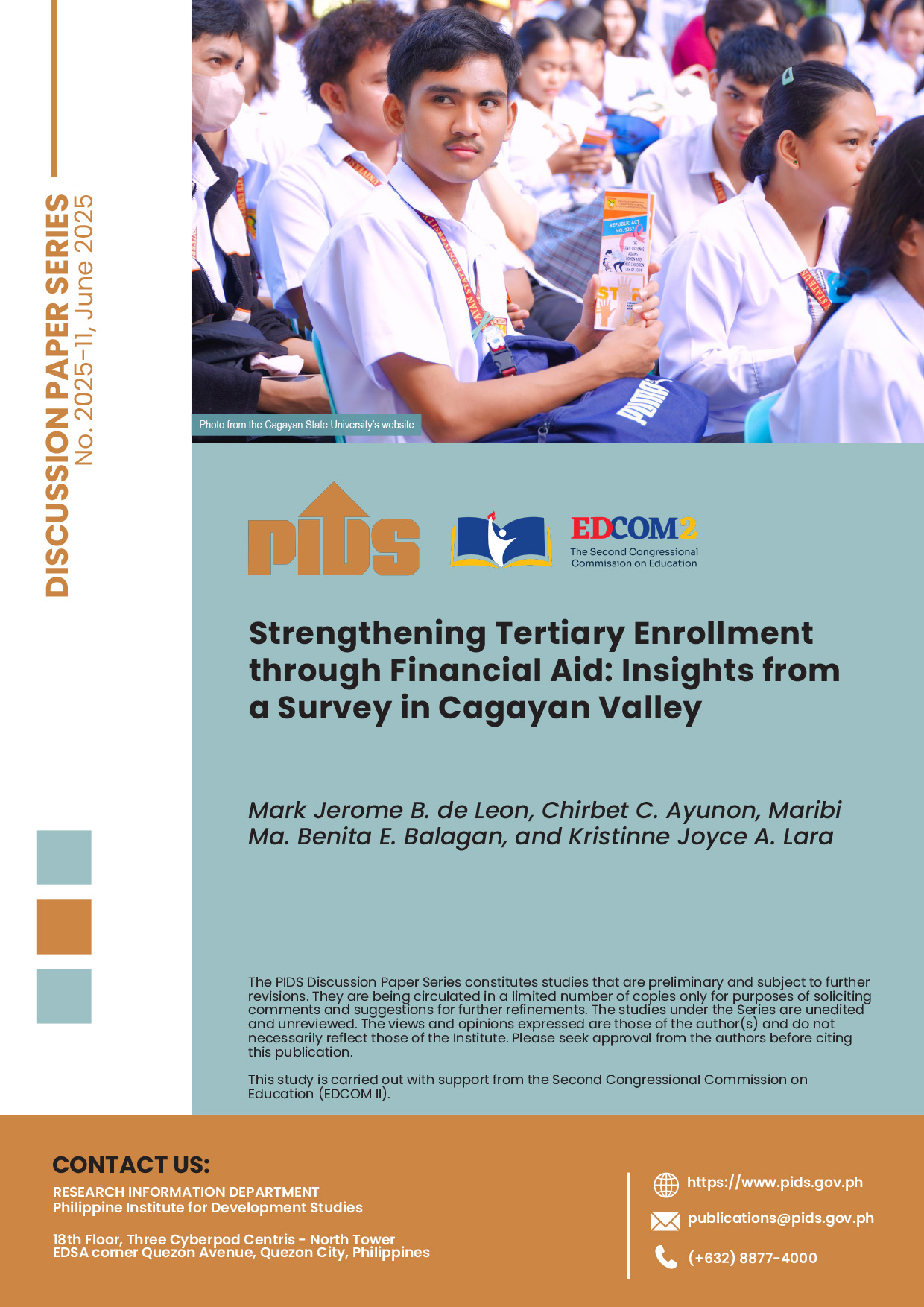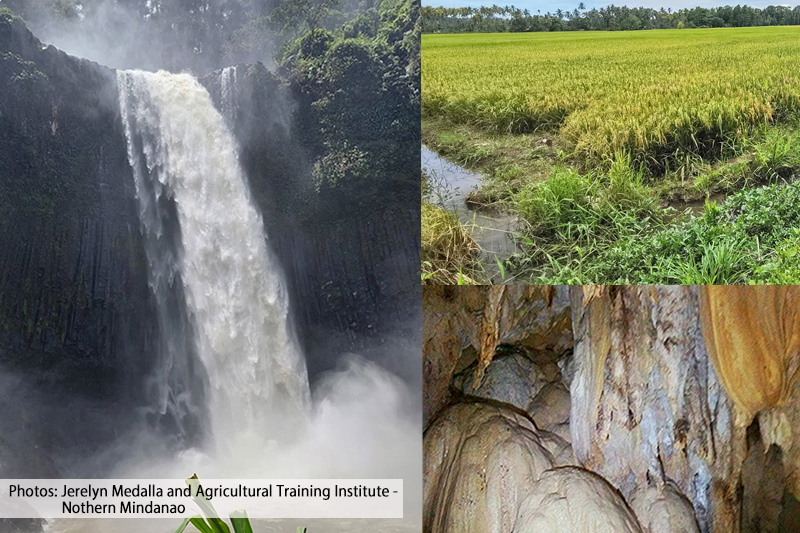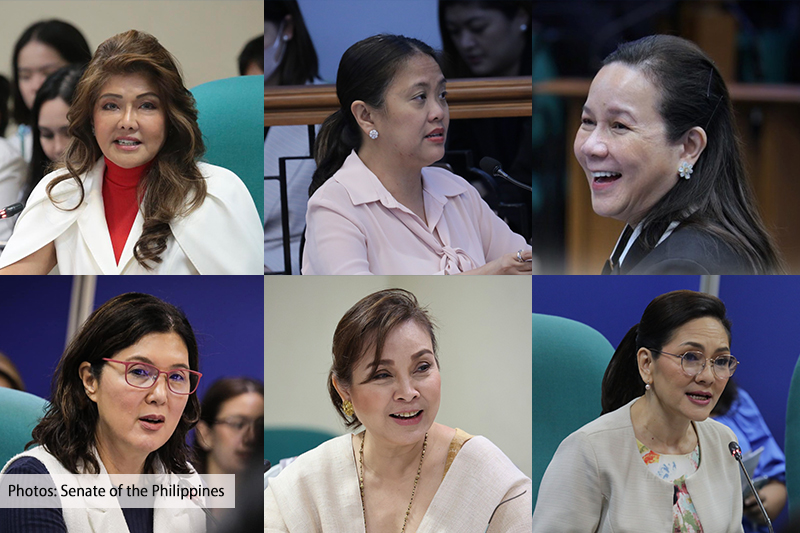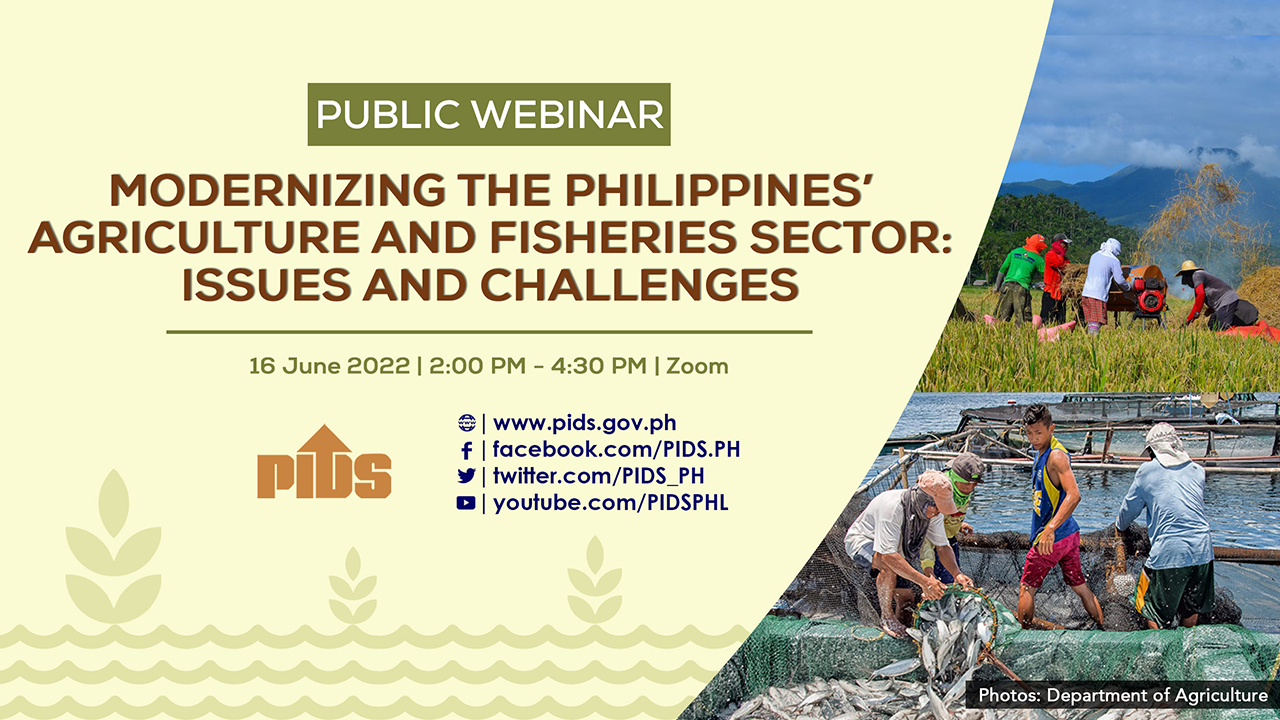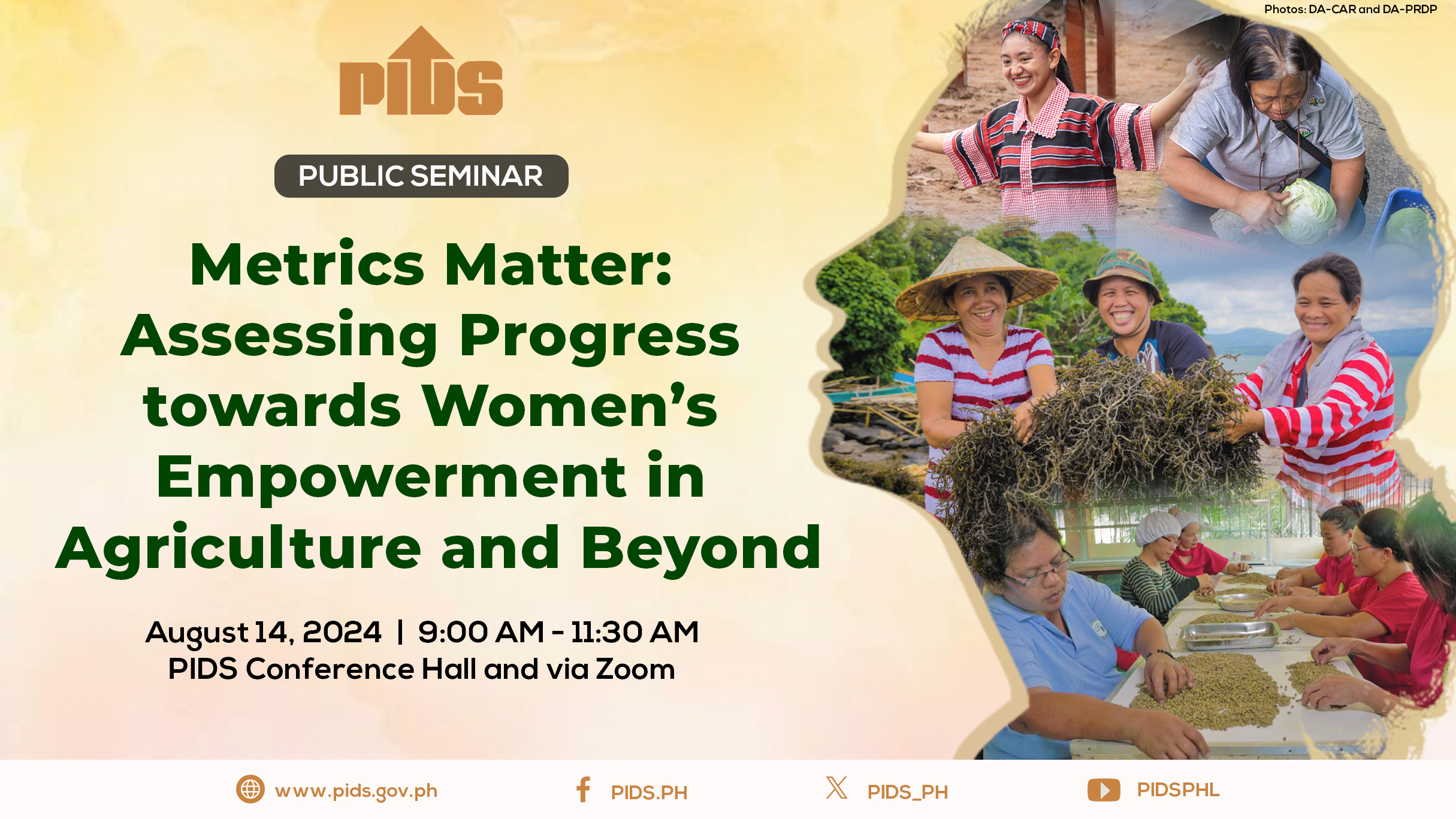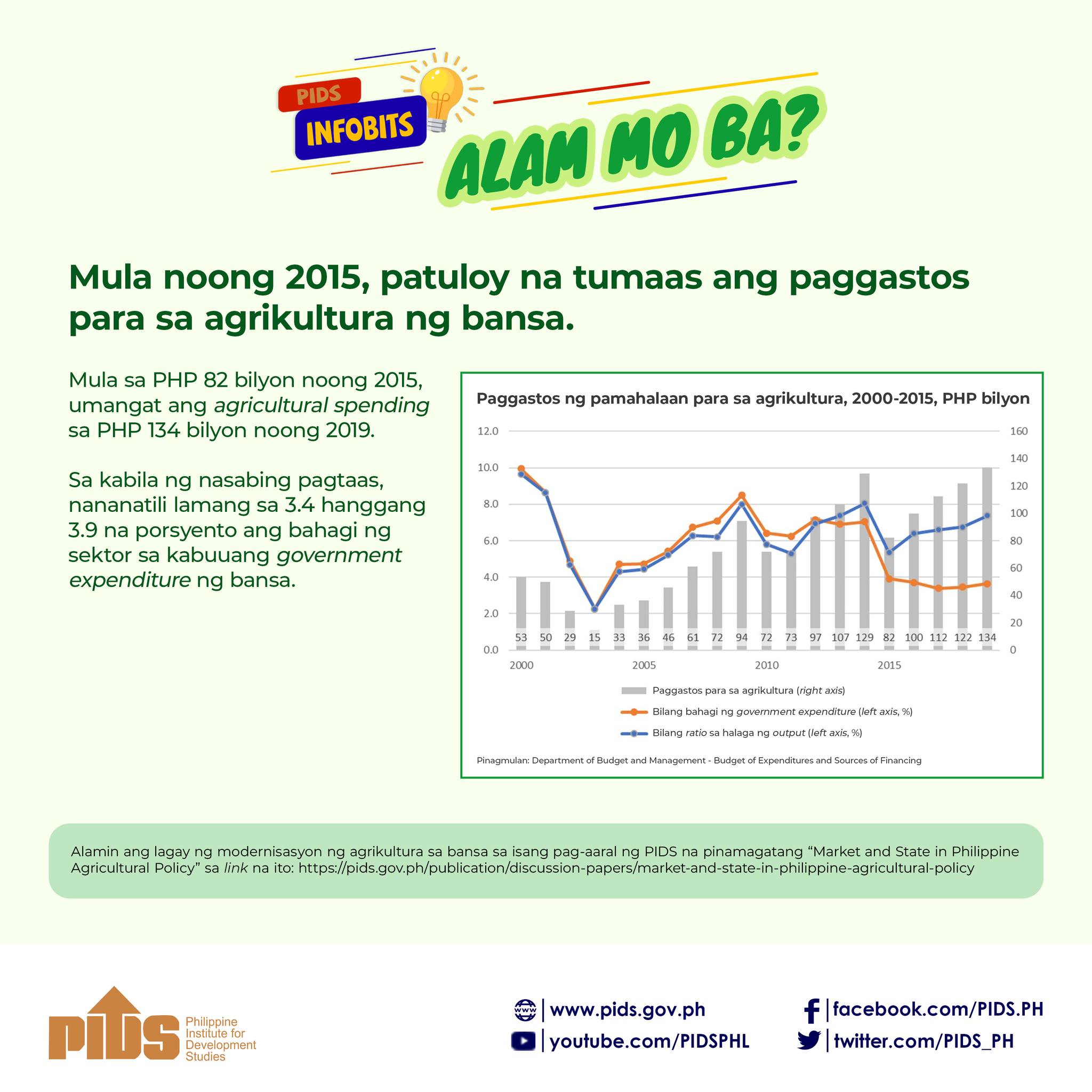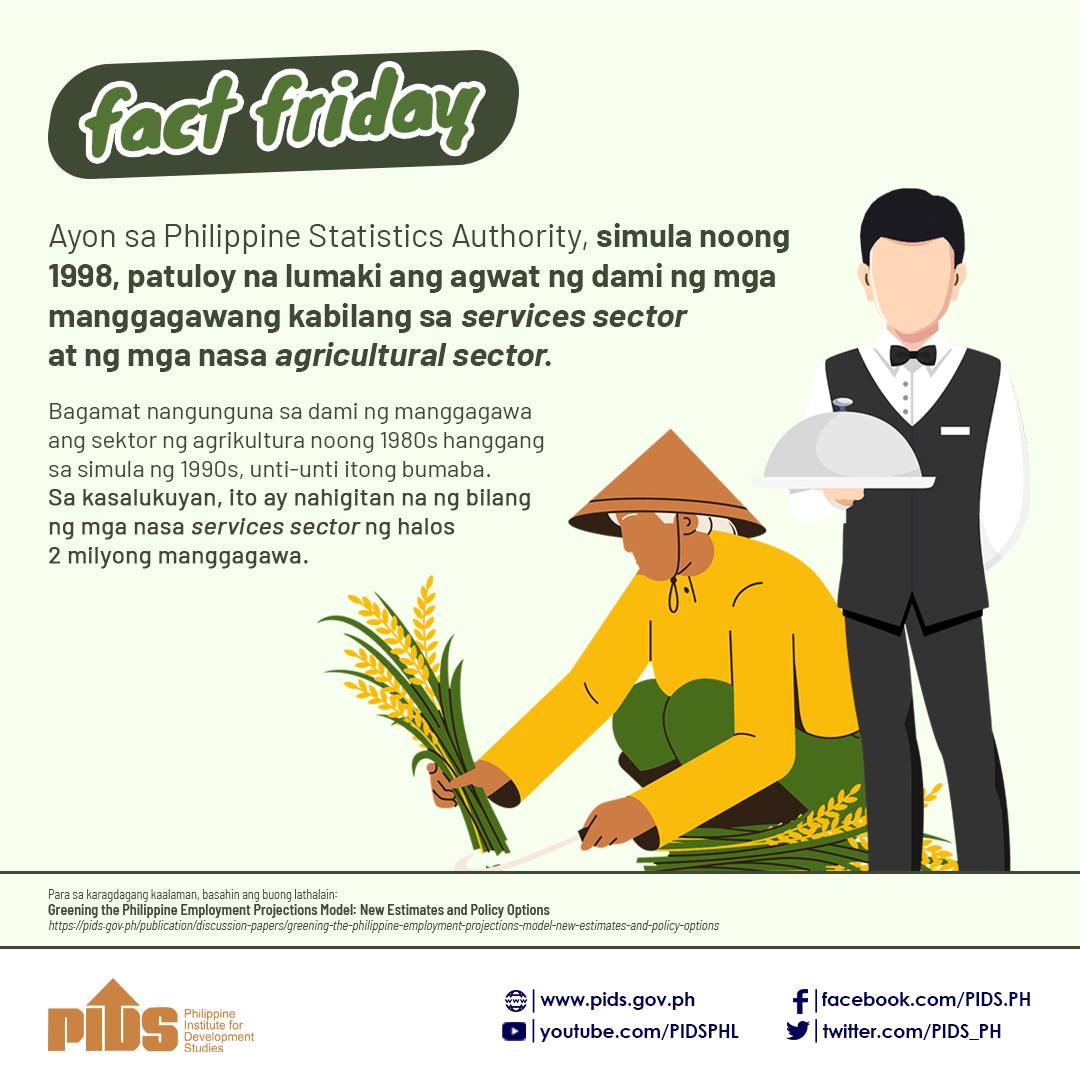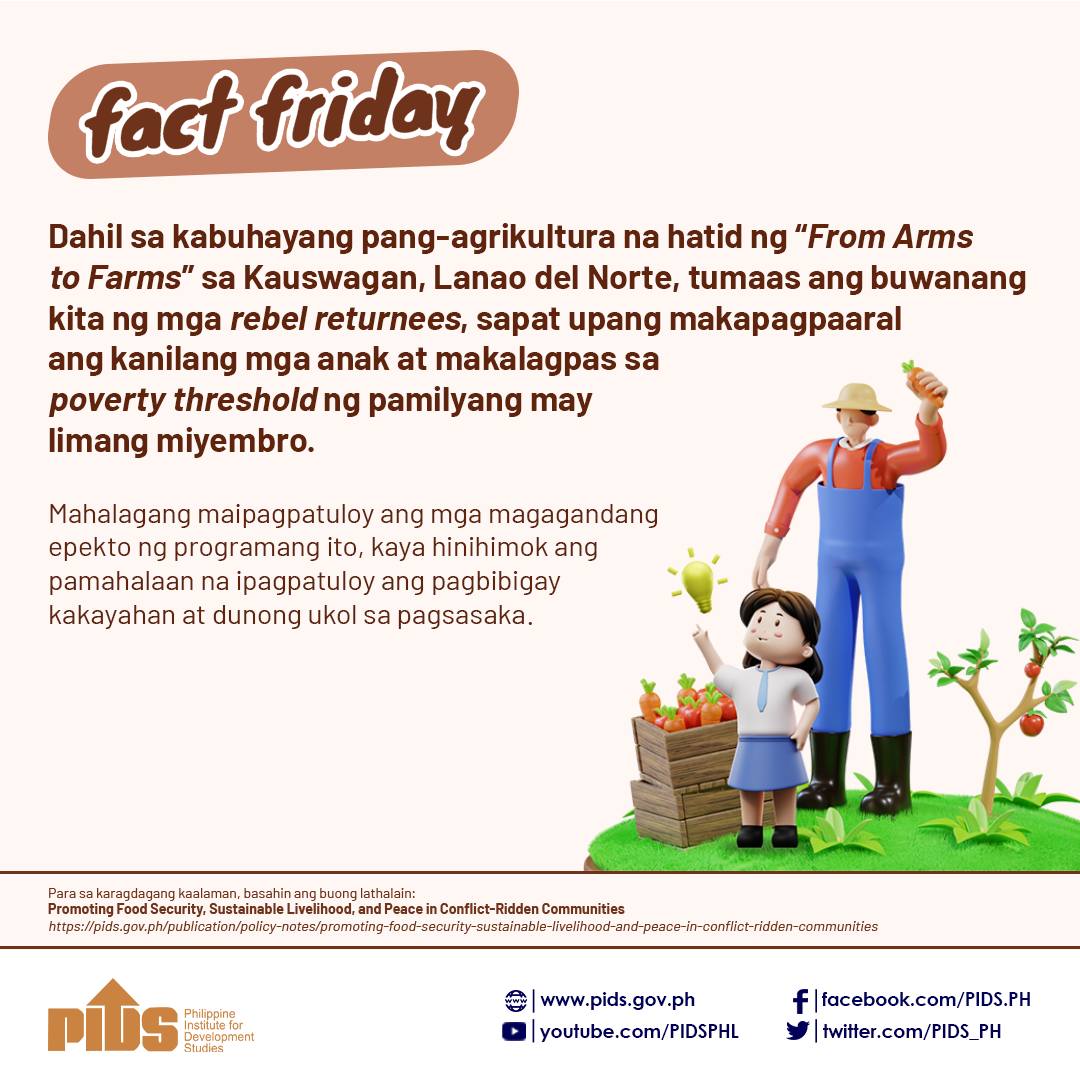Enrollment in agriculture and related courses continues to go down despite the increasing demand for food and other farm products in the country, the Southeast Asian Regional Center for Graduate Study and Research in Agriculture (Searca) said on Wednesday.
Searca said enrollment in agriculture courses declined by 1.5 percent on average each year, citing findings of a comprehensive study on trends, prospects and policy directions in higher education in agriculture published in 2013 by the Philippine Institute for Development Studies (Pids) and the Philippine Council for Agriculture, Aquatic and Natural Resources Research and Development (PCAARRD).
This information was shared by Searca during the Congressional Committee on Higher and Technical Education (CHTE) meeting on August 18 to which the center was invited to present its position on House Resolution 589.
The resolution, authored by Rep. Estelita Suansing of the First District of Nueva Ecija, urged the conduct of an inquiry, in aid of legislation, on the decreasing number of licensed agriculturists and students pursuing a career in agriculture with the end view of maintaining the country’s rice sufficiency.
"The downward trend in enrollment in agriculture courses poses a serious concern to the agriculture sector, which is responsible for supporting the country’s growing demand for food, fuel and feeds,” Suansing said in a statement.
Meanwhile, the study conducted by Pids and PCAARRD also showed that while unemployment among graduates of agriculture, forestry and natural resources (AFNR) is high, other college graduates also have the same problem.
Searca said it agrees with PIDS and PCAARRD that the limited employability of AFNR graduates is less likely a supply problem than a result of a shifting demand in the job market as the country’s agri-based economy becomes more industry- and service-oriented.
It advocated for agricultural education in the country to become more focused on creating business opportunities from agriculture and developing the technical and entrepreneurial skills of students.
"The time has come to move up the value chain of agriculture to cover the entire agribusiness commodity system and not limit its domain to just farm-level production,” Searca said.
"Broadening the domain of agriculture would also count in favor of the Philippines as it faces the Asean Economic Community 2015, where production and trade will be borderless, therefore, the perspectives and expertise of agriculture graduates should encompass the whole value chain, not just production,” Searca added.
Searca’s suggested improvements on the curricula used in agriculture courses include the application of new information and communication technologies to agriculture data analytics, agricultural technology and to solutions for agricultural development; and providing space for transdisciplinary, problem and practice-based approach to learning agricultural science and entrepreneurship.
"Partnerships with government agencies and the private sector will also give students opportunities for collaborative research and expose them to real world applications of science and technology,” it said.
With its mandate to link research to policy, Searca offered its services to coordinate additional research in aid of legislation as CHTE may find necessary.
The research institute said it can conduct studies that focus on curricular reforms in agriculture or AFNR, in partnership with universities undertaking research and development in inclusive and sustainable agricultural and rural development.//

